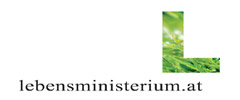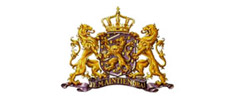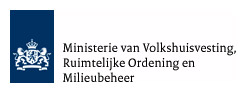WECF and Eco-Accord Report of the 7th ‘Environment for Europe’ Ministerial Conference, 2011, Astana
WECF and Eco-Accord presented the report of the Seventh ‘Environment for Europe’ Ministerial Conference, held on 22-23 September 2011 in Astana, Kazakhstan
10.01.2012 |WECF news

Read the WECF and Eco-Accord Report below or please find its downloadable version here.
Also, read the Astana Declaration on the Pan-European Agenda for the Astana Environmental Ministers Conference, adopted by the Plenary of the European ECO Forum.
Other post-session documents:
- Summary of the Conference in English
- Report of the Conference in English
Report
NGO and civil society participation and contributions
during the
Environment for Europe,
7th Ministerial Conference, Astana, Kazakhstan
22-23 of September 2011, Astana, Kazakhstan
Introduction
The 7th Ministerial Conference “Environment for Europe” took place in Astana, Kazakhstan from 21-23 September 2011. The ministerial conference brought together the ministers of environment and their representatives of the 56 countries of the UNECE region. The ministerial conference focussed on a policy outcome document from the ministers, and two policy areas water and the green economy. Furthermore, the conference linked to the 2012 United Nations Conference on Sustainable Development, also referred to as “Rio+20”, where governments from around the world are planning to commit to roadmap(s) for the “Green Economy”.
For many years public participation in environment and sustainable development has been regarded as a valuable part of Environment for Europe process. Civil society organization have always been actively engaged in policy development at the international, national and local levels, in building cooperation and partnership with different stakeholders, in raising awareness on environment and sustainable development among public organizations.
Coordination
The project was implemented by the co-chairs of the European Ecoforum, Eco-Accord Russia and WECF Netherlands, in consultation with the coordination board of Eco-Forum and in close cooperation with the UNECE and the responsible ministries in Kazakhstan.
The Project focused on the following key activities:
- NGO / Civil Society Participation
- Nominations and selection and organisation
- Preparatory NGO / Civil Society Forum including a policy part and an awareness raising part.
- Organise daily NGO / Civil Society caucus meetings
- Manage the entry badges for the NGO / civil society organisations
- Publish information publication with key events
- Give interventions in the ministerial conference
The coordination board of the European Eco Forum indentified representatives of active NGOs to be supported based on their experience in Environment for Europe process and in thematic areas, as well as necessity to meet geographical, regional and gender balance. The priority funding were provided to those from the Central Asia thus allowing a greater number of Central Asian civil society participants to attend.
In total 49 NGO could attend the EfE in Astana thanks to the European Eco Forum.
1.2. Report on the NGO Preparatory Conference 21 September 2011
Over 60 environmental NGO representatives and other civil society organisations took part in the NGO preparatory conference on 21st of September 2011. The NGO conference took place in the official conference building in Astana, Kazakhstan. Simultaneous translation was provided by European Eco-Forum for Russian and English.
Olga Ponizova of Eco-Accord Russia and Sascha Gabizon of WECF , co-chairs of the European Eco-Forum, opened the NGO preparatory conference. The co-chairs then welcomed Mr Alexander Bragin, of the Kazakh Government, Ministry of Environment.
Mr. Bragin welcomed the civil society representatives to Kazakhstan in the name of his government, and highlighted the importance of their participation in the Environment for Europe policy process, and in the 7th ministerial conference in Astana. He explained in greater detail the Green Bridge initiative of the Kazakh Government, which was launched the previous year at the ESCAP ministerial conference. He called on civil society to support recommendations that Green Bridge becomes an outcome document of the Astana 7th EFE ministerial conference.
In the following discussion based on the presentation by Mr Bragin, comments were made on the role of technology transfer and trade agreements under WTO.
The NGOs then split up into different thematic groups to prepare the NGO statement for the Astana Conference. The “Astana Declaration” can be downloaded here:
2. 1. Plenary session interventions
European Eco-Forum was given the possibility 4 plenary session interventions. Several weeks in advance of the meeting, members of the European Eco-Forum divided the roles and prepared the interventions via email and in conference calls. The interventions are available on the UNECE website under: http://www.unece.org/env/efe/Astana
Eco-Forum selected four people for key-note speeches at the Astana conference to express main messages, elaborated by NGOs:
- Olga Ponizova Eco-Accord, Russia-on Environment for Europe Process (attachement 6)
- Janis Brizga, Green Liberty, Latvia - on green economy (attachement 7)
- Sascha Gabizon, WECF, Germany - on water and water-related eco-systems (attachement 8)
- Anna Golubovska-Onissimova, Ukraine - on water and greening the economy (attachement 9).
Olga Ponizova highlighted the importance of public participation in the process, recalling key outcomes and events, including the roundtable sessions between ministers and environmental NGOs. She also highlighted the problems encountered by NGOs in working with the Regional RECs. She called on a strong support from governments for a continuation of the Environment for Europe process. She mentioned that NGOs welcome the Green Bridge initiative concept, and look forward to receiving more information on concrete actions and criteria.
Anna Golubovska of National NGO MAMA-86 Ukraine gave a plenary intervention water and the green economy, and on the need to start implementing specific tools such as water accounting and water footprint calculations for products. She also highlighted the need for social justice when aiming at full cost recovery, and that cross-subsidising is a necessity.
Sascha Gabizon, of Women in Europe for a Common Future WECF, gave a plenary intervention on water management. In her introduction she thanked the Kazakh government for hosting this important conference in Astana, and remarked in the side-lines that it was regrettable that the country continues to widely use chrysotile asbestos as a building material. She then addressed three key water management issues,
- Bad management of water resources in the transboundary context. She mentioned good examples such as the Chiu-Talas and Dniester basins, and highlighted the worst example, of the Aral Sea. She called on governments who had not don so, to ratify the Water Convention, and she called on target to reduce irrigation in the Aral Sea basin.
- Deterioration of rural water supply and sanitation. She deplored the lack of access to safe water supply and sanitation in the EECCA region, and gave the example of under-five-year-old morbidity in Central Asia, commenting that these diseases are entirely avoidable, the suffering entirely unnecessary. She called on governments who had not yet done so to ratify the Protocol on Water & Health, to develop policy guidelines on small scale water supply and sanitation, and for the EBRD water fund to invest in rural water supply and sanitation.
- Mining pollution of our waters. She highlighted the risk of irreversible pollution of groundwater aquifiers in all of the EECCA region from mining waste, an in particular water pollution with radionuclides from old uranium mines in Central Asia. She called for urgent measures and financing to clean up uranium mines in Central Asia, highlighting the best practice example of the Wismut mine in Germany. She called on Bulgaria (Krumovgrad) and Armenia (Lake Sevan) to not give permits to gold mining companies in areas where water pollution was a risk.
Janiz Brizga, of Green Liberty, Latvia, gave a plenary intervention on the topic of the Green Economy. He confirmed that Environmental NGOs support the development towards greener economies, and highlighted important tools such as resource efficiency and life cycle approach, environmentally sound technologies, education and training. He noted that these measures need to be accompanied by measures to assure a fair distribution of resources and measures to change public values, norms and behaviour patterns. He called on governments to mandate the UNECE to set up a group to work on a regional framework and roadmap on sustainable production, consumption and the green economy.
2.2. Roundtables with Ministers
An important element of the Astana Conference were the high level ministerial roundtable discussion, where ministers and delegates held focussed debates on the key themes of the ministerial conference. European Eco-Forum was allotted 4 seats per roundtable. Many weeks in advance of the Astana conference members of the European Eco-Forum had allocated NGO representatives to the different roundtables, based on a number of criteria, including expertise on the topic and regional and gender balance. In total 36 representatives of civil society took part in the Round Table discussions. The list of participants is enclosed in Annex 2.
Input by civil society highlighted regional priorities, the need for resource capping as a tool, the need for safe management of waste to prevent irreversible (ground) water pollution – including asbestos and chemicals waste – and the need for instruments to insure equity, e.g. social payments and cross-subsidies to allow the poor access to water and sanitation. The input from civil society has been reflected in the reports from the roundtable chairs.
2.3. Meeting with EU presidency
The Polish presidency organised a meeting with NGO representatives and members of European Union member states during lunch on Friday 23 of September.
The session was chaired by Sascha Gabizon and Olga Ponizova, co-chairs of European Eco-Forum. They welcomed the participants and noted that NGOs were very grateful for this opportunity for NGOs to meet with the Polish EU presidency and other representatives of the European Union and representatives of the European Commission.
The first NGO representatives presented key recommendations of the NGOs.
Olga Ponizova as first speaker, highlighted the value of the EfE process for the UNECE region and the need to strengthen future development of the process.
Sascha Gabizon highlighted examples of technologies which seemed beneficial at first, but then turned out to lead to unacceptable damage and risks to health and the environment, and called for an independent technology assessment and monitoring body.
Janiz Brizga highlighted that Green Economy Roadmaps should not only focus on ‘resource efficiency’ but also on ‘sufficiency’.
Kaisha Atakhanova of Social Eco Fund Kazakhstan called on governments to assure that – after the lessons learned from Fukushima – the full cost of the nuclear fuel cycle is paid for by the industry and consumers of nuclear energy, unlike currently is the case, where accident insurance is limited to a unrealistic low amount. The price for nuclear energy should also include the complete clean up of uranium mines and decommissioning of nuclear reactors after closure.
Svetlana Slesarenok, of Black Sea Women’s Club, highlighted that rural communities are already strongly effected by extreme events like floods and draughts. She called on EU support for development of capacity building for Climate Change adaptation strategies for local and regional use. “It is not smart, if we have wait until we agree on national level strategies, we urgently need to start with local strategies”.
Mr. Andrzej Kraszewski, Minister of Environment of Poland, commented on the recommendations. He agreed that the Environment for Europe process had been very important for all the region, also for his country. He agreed with the need to look at sufficiency, and capping of recourse use, as growth in a limited physical environment is not endlessly possible. He gave a very educational example of bacteria in a laboratory test. He explained why his countries – which wants to be independent in energy security – thinks it cannot achieve this without nuclear, or even shale gas.
Ina Coseru, of National Environment Center, Moldova, informed that the EU Eastern Partnership does not achieve to involve the relevant civil society organisations, that this is a pity, as the EU normally stands for transparency.
Eva Ederström of the National Swedish Environment Federation, called for full content declaration –including of hazardous chemical substances – of all products, to be added during the revision of the General Product Safety Directive.
Karine Danielyan of Aarhus Centers Armenia asked, with reference to the preparations of Rio+20, if there are any concrete negotiations happening to add Sustainable Development to the mandate of International Finance Institutions.
As the minister had to leave for another meeting the participants continued to discuss with the representative of the European Commission.
Side Events
Two side-events were organized by the European Eco-Forum.
1) Trade and Greening the Economy
The side-event aimed to discuss the role of trade in the transition to a "green economy” and to identify steps to be taken at international and national level to ensure that trade becomes an enabeling factor and not an obstacle to "greening" the economy.
Key speakers for the event were:
- Olga Ponizova, Eco-Accord, Russia - interrelations between trade and sustainable development;
- Eva Eiderstroem, the Swedish Society for Nature Conservation, Sweden - experience of different countries in eco-labelling;
- Olga Speranskaya, Eco-Accord/IPEN - how trade and help to address climate change problems;
- Olga Kazantseva - EECCA Network on Trade and Sustainable Development - Moldovan experience on trade and environment;
- Oleg Pechenyuk, Independent Ecological Expertise, Kyrgyzstan - international trade rules and multilateral trade agreements.
2) “One sector's Waste, other sector's Resource” - Resource Efficiency in the Water and Energy Sectors
The purpose of this side-event was sharing up-scalable best practices of resource efficiency which create employment whilst improving quality and output in the water, building, agricultural and energy sectors.
Key speakers for the event were:
- Kaisa Atakhanova, Social Eco-Fund, Kazakhstan and Sascha Gabizon, WECF, Germany - introduction to the issue;
- Anna Samwel – WECF - Best practices from Bulgaria and other UNECE countries on resource efficiency and business models for rural water and energy solutions;
- Svetlana Slesarenok, BSWC, Ukraine - Water Safety Plans, Sustainable School sanitation and urine re-use in Ukraine;
- Rusudan Simonidze, Greens Movement, Georgia - Experience from Georgia with resource efficiency in the energy, agriculture and building sector;
- Rauf Sabitov, MCJM - Sustainable Sanitation and Eco-Tourism in Kazakhstan;
- Vladimir Korotenko, BIOM - Recommendations for policies to increase resource efficiency and rural economic development in Kyrgyzstan;
- Elmira Joldosheva, Central Asian Alliance for Water, examples from Kyrgyzstan
European Eco-Forum activities
Daily caucus meetings took place for all European Eco-Forum and other civil society organisations. On Thursday evening, 22 of September, the European Eco-Forum member organisations met and nominated the chairs and co-chairs of the different working groups. On Friday evening a social event was organised where European Eco-Forum members met to informally discuss the results of the Astana meeting and the plans for follow-up of the process.
Related News
Calling for periods free from plastic & hazardous chemicals
Letter to Frédérique Ries, MEP, European Parliament on behalf of the #BreakFreeFromPlastics movement
04.09.2018
Together for sustainable sanitation and water security worldwide!
Stockholm, 26-31 Aug 2018: WECF participated in the World Water Week 2018 to further support the worldwide implementation of SDG 6
01.09.2018
Fifth meeting of the Expert Group on Equitable Access to Water and Sanitation, 26 - 27 June 2018
WECF shares experiences on developing and implementing Equitable Access Action Plans
27.07.2018
National Round Table and Training on Drinking Water Issues and Priorities in Macedonia
Working Package 2 – Educational measures for responsible institutions and drafting of regulations, among the on-going project „Water and Sanitation Safety Planning in Romania, Albania, and FYR Macedonia”
27.07.2018
Training for Teachers on Water and Sanitation Safety Planning
Women in Development and WECF organise a 2-day workshop in Shkodra region, Albania
27.07.2018






































